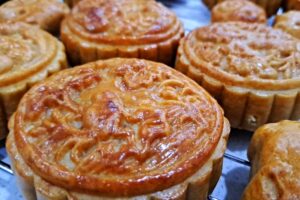Chopsticks are a common utensil in Vietnam, widely used in everyday meals.
A few international tourists need help controlling chopsticks. Thus, Vietnamdrive’s team will introduce you to the proper use, what to avoid in the culture of using them, and much more.
Table of contents:
- The origin of using chopsticks in Vietnam
- How to use Vietnamese chopsticks
- Various types of chopsticks in Vietnam
- Meaning of chopsticks
- Rules when using chopsticks in Vietnam
- Three FAQs about chopsticks
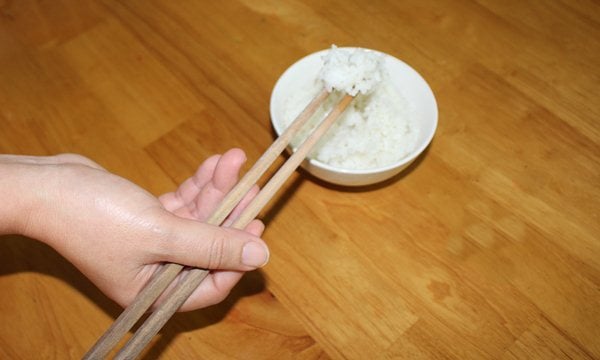
1. The origin of using chopsticks in Vietnam
Vietnamese culture has a robust community character. Everyone in the family shares the same big plates and a rice cooker, although they have their small dishes.
In the past, people used their hands to pick up food. However, because Vietnam is an agricultural country, hands often work with soil and fertilizers. So, this method was not polite and unsanitary.
Thus, people would choose bamboo sticks instead of their fingers when eating to be better at taking food.
Gradually, the Vietnamese people created regular bamboo sticks to become the most beautiful chopsticks used in the community.
As a result, Vietnamese chopsticks made of bamboo are the original eating utensils for the locals.
With the development of society, even though spoons and forks have come to the local people. However, eating with chopsticks has become an irreplaceable habit and is one of the beauties of Vietnamese culture.
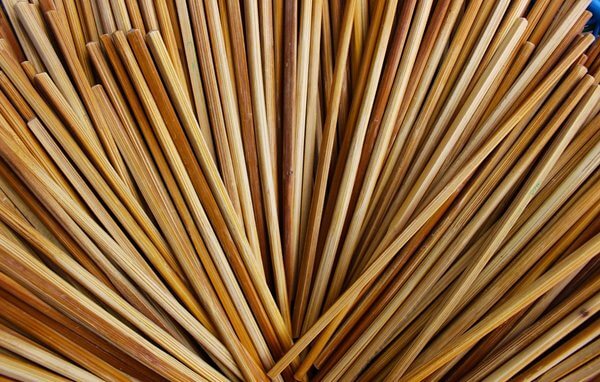
2. How to use Vietnamese chopsticks:
The Vietnamese learned to use chopsticks when they were babies, so almost all the locals are skillful at using them to pick up food.
Here is the way to control them:
- Choose the same type and the same appearance as a pair of chopsticks.
- Arrange the two ends of the chopsticks evenly.
- Only touch the upper first part of the chopsticks, which is often bigger than the other part.
- The thumb and little finger hold a chopstick stably.
- The remaining three fingers and the thumb hold the second chopstick (as shown below); the second can now move flexibly.
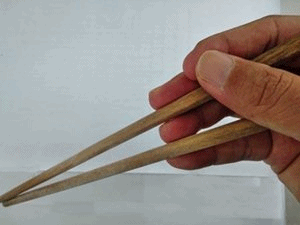
Usually, a pair of chopsticks has one small head and one big head. The small head is for eating, and the big head is for holding.
You may practice for a few days; then, you can control them easily.
When you plan to travel to Vietnam, you should learn how to manage chopsticks in advance. It is because you can find no forks or knives in plenty of local restaurants.
3. Various types of chopsticks in Vietnam
Bamboo chopsticks in Vietnam are still very popular, cheap, and easy to make.
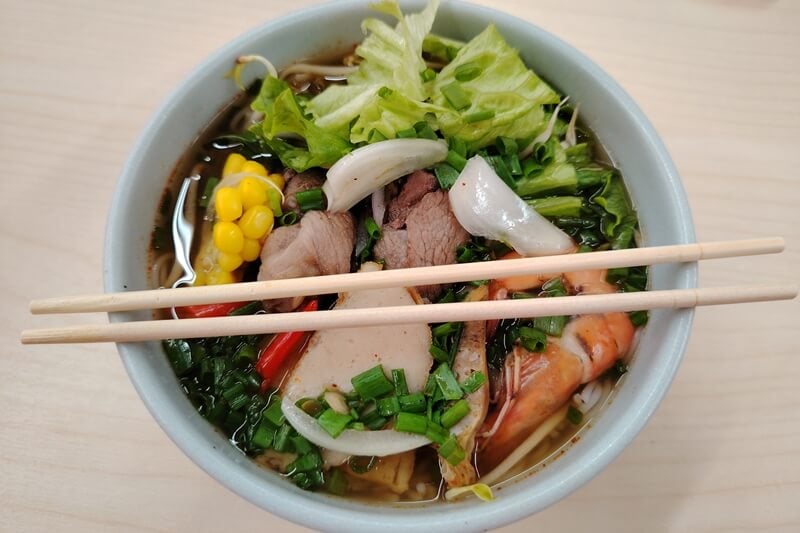
One can use locally available bamboo trees to create chopsticks for the family. Therefore, this type of chopsticks is the top choice in Vietnamese villages.
Bamboo chopsticks are also divided into two types: disposable and reusable.
The disposable type only appeared recently due to the demand for use in picnics, large parties, and weddings in Vietnam.
Reusable chopsticks are preferred in homes. People use old, good bamboo, which makes them firmer. They can be washed after eating and used again.
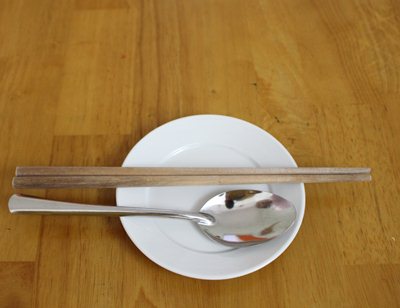
The second most popular type is wooden chopsticks made from a machine. These chopsticks can be used repeatedly.
About 30 years ago, only wealthy families used wooden chopsticks. This is because these chopsticks, painted and encrusted with pearls, look very nice and expensive.
Nowadays, mass-produced wooden chopsticks are also popular in restaurants in Vietnam. However, these chopsticks are not beautifully decorated like the old ones.
These wooden sticks usually have one round and one square end. The round head is used to pick up food, and the square head is used for holding.
If in the family, when inviting guests, owners often use wooden utensils instead of bamboo ones because they look better and are more polite.
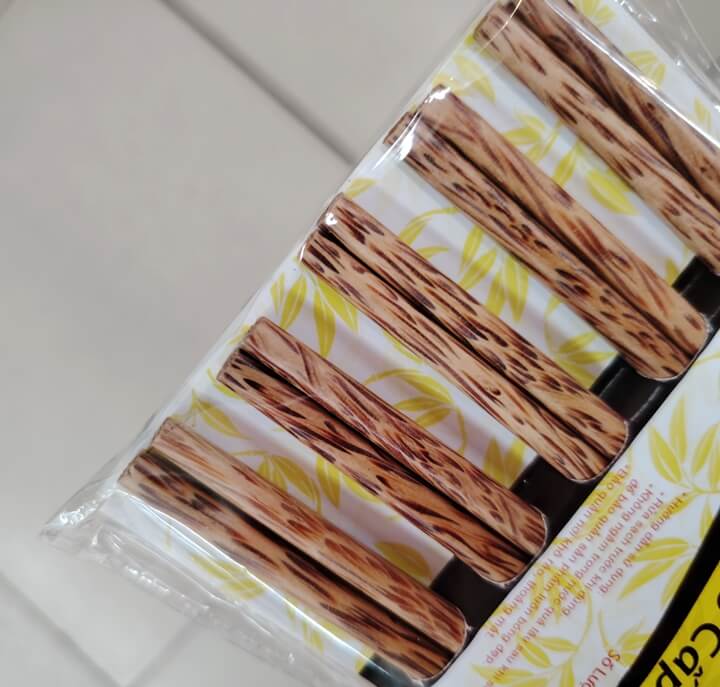
The following kinds of chopsticks are coconut ones made from coconut trees, which are well-known in the regions of the Mekong Delta.
Coconut chopsticks look beautiful but are not long-lasting and less strong than others.
The fourth type is stainless-steel chopsticks, which are uncommon and unpopular.
Although the Inox chopsticks look lovely, picking up food is challenging. Therefore, this type of chopsticks is only used for decoration.
4. Meaning of chopsticks
Chopsticks means “Đũa” in Vietnamese, and “Đôi Đũa” is a pair of them.
The chopsticks always come in pairs. When used, one stick will stand steady while the other moves, proving the harmony of yin and yang between the passive and active elements.
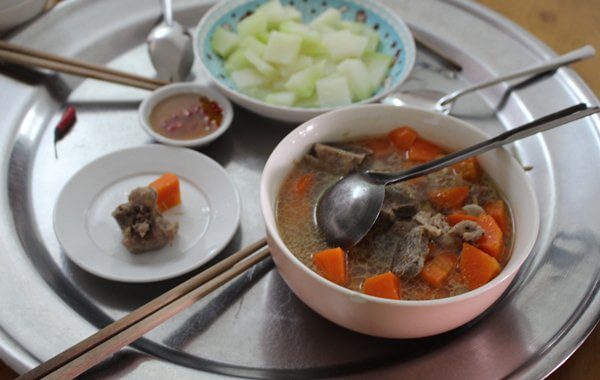
Education on using Vietnamese chopsticks is also essential in the family. Vietnamese people believe that the style of managing chopsticks during meals or at parties also shows a person’s educational level.
In deeper meaning, the bunch of chopsticks symbolizes Vietnamese culture’s public community because it is too hard to break all of them at once. Thus, the bunch of sticks presents the strength of a family, a community, a village, a city, or a country.
An excellent and fit pair of chopsticks also represents a good relationship between wife and husband in the family. Like a pair of chopsticks, two people must lean on each other to live.
Chopsticks are present in almost every Vietnamese meal. They are like an outstretched arm used to grab food when there is only one big plate in the middle of the table for everyone.
Vietnamese chopsticks also show family love because they are used to picking up food for themselves and sharing food with their loved ones.
Another meaning is that the Vietnamese teach their children to manage chopsticks early, which can create dexterity for their hands.
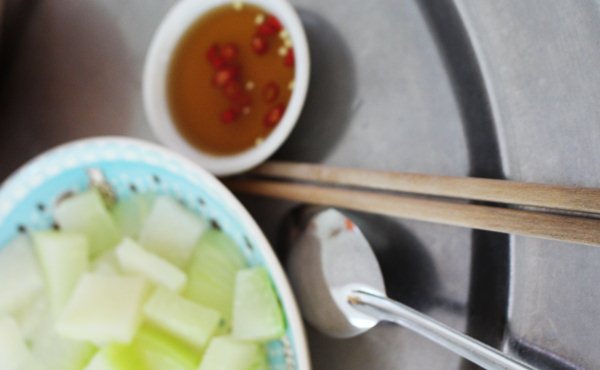
5. Rules when using chopsticks in Vietnam
Although the culture of eating and drinking in Vietnam is different in the various regions, the general point is that everyone uses chopsticks, which creates community cohesion.
Here are a few rules:
- It is not good to use unfit chopsticks because the wrong chopsticks refer to a disproportionate family. The husband and wife are not getting along.
- Please do not put the chopsticks diagonally; it’s better if they are parallel.
- Do not suck the chopsticks because it is impolite.
- Do not move the chopsticks around or point to other eaters.
- When picking up the food, don’t mix the food plate to find something you like. Take from the top to the bottom.
- Do not put chopsticks upright in a rice bowl, as this is equivalent to placing incense into an urn to make offerings to the deceased.
- Please do not touch the chopsticks in the dipping sauce or stir them into the soup bowl.
- Avoid dropping the chopsticks when eating to show a skillful person.
- Avoid using chopsticks to point at other people’s faces. When this happens, it means someone is saying a bad thing to another.
- Their children learn not to knock chopsticks on the bowl, which can create the sound of calling a hungry ghost to come home.
- Invite or wait for the oldest person to hold the chopsticks to get food at a daily meal or party. Then, the younger can follow. This rule shows politeness and respect for the older.
- At the beginning of the meal, especially in a traditional way, before serving for themselves, people use clean chopsticks to pick up food to invite others.
- During a meal, when one wants to offer someone food, it is usually polite to turn around the tip of the chopsticks to pick the foodstuff for the other.
- After a meal, please put chopsticks down neatly, not let the chopsticks become staggered or skewed.
These things are small notes, but if you do not pay attention, they also make you worse in the eyes of others.
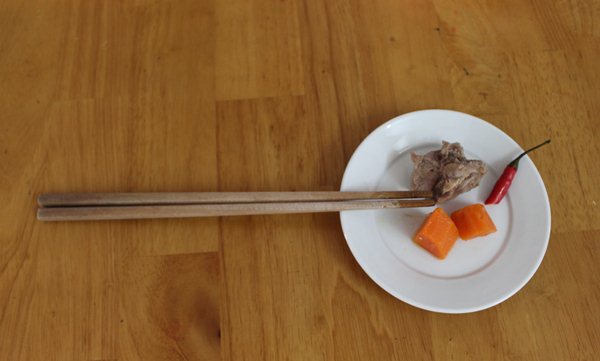
6. Three FAQs about chopsticks
Where can I buy chopsticks in Vietnam?
You can easily find chopsticks in almost all local markets in Vietnam. Come to the markets and ask anyone pleased to show you where to get them.
Can I give the Vietnamese the chopsticks as a gift?
It would help if you do not do this. In Vietnamese culture, when people receive chopsticks, they feel they will have more to worry about when eating.
How much for one pair of chopsticks?
A bunch of bamboo or wooden chopsticks costs around 30,000 VND or 1.5 USD. The Vietnamese people often sell a bunch of 10 pairs, not one, unless the chopsticks are decorated beautifully and are expensive.
Chopsticks are more than just a tool to pick up food. Using chopsticks in Vietnam shows the culture’s ingenuity, attention, and sophistication.
Although chopsticks are small items, they contain a long history and deep philosophies in the Vietnamese family.
In Vietnam, using these utensils has also become a tool for parents to teach their children the first lessons about order and respect.



